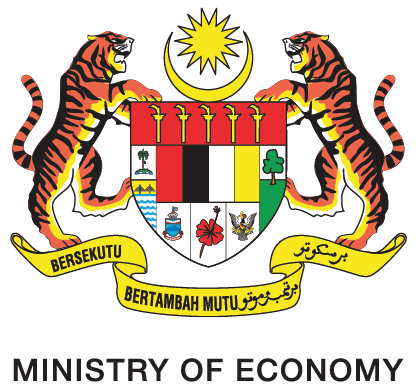About
Importance of CCUS to Malaysia
Balancing Economic Growth and Sustainability
Climate Change Mitigation
Meeting Emission Reduction Targets
Malaysia has targeted to reduce carbon intensity against GDP by 45% by 2030 compared to 2005 levels.
The revised NDC now addresses seven greenhouse gases, a significant expansion from the three covered in the initial NDC. To facilitate the achievement of NDC targets, Malaysia will develop a National Adaptation Plan and an NDC Roadmap.
Ensuring Energy Security
CCUS as A New Source
of Growth
CCUS as A New Source of Growth
Sustaining Decarbonisation Efforts
CCUS to Empower Rakyat
Carbon Capture, Utilisation and Storage (CCUS) plays a critical role in supporting economic growth by balancing environmental objectives with industrial development. Here is an overview of how CCUS contributes to economic growth:
Sustainable Economic Development
Job Creation and Innovation
Industrial Competitiveness
Attracting Green Investment and Funding
Extending The Life of Key Sectors
New Revenue Streams from Carbon Utilisation
Enhancing Energy Security
Mitigating Environmental and Social Costs
Stimulating Economic Growth
The development of CCUS projects could stimulate Malaysia’s economic growth through
New Industry Development
New Industry Development
Creating new industries in Malaysia, such as CO₂ transportation, storage management and utilisation technologies.
Investment Attraction
Investment Attraction
Attracting both domestic and foreign investments, bringing in capital and expertise.
Export Potential
Export Potential
Fuelling export activities when it comes to CCUS technologies, services and knowledge to other countries in the region.
Green Financing Opportunities
Green Financing Opportunities
Attracting green bonds and climate finance, helping Malaysia tap into the growing global market for sustainable investments.
Improved Economic Resilience
Improved Economic Resilience
Allowing Malaysia to better protect its existing industries from future carbon regulations and taxes.
Advancing with the Future
The development and implementation of CCUS in Malaysia could drive significant technological progress:
Innovation in capture technologies
Innovation in capture technologies
Encouraging the development of more efficient and cost-effective ways to capture carbon dioxide from various sources.
Advancements in Storage Techniques
Advancements in Storage Techniques
Bolstering improvements in geological assessment, monitoring and long-term storage of carbon dioxide, as well as new materials and methods for storage.
Progress in CO₂ utilisation
Progress in CO₂ utilisation
Providing research opportunities into new applications for captured carbon dioxide, such as in building materials, chemicals or fuels.
Improvements in Transportation Infrastructure
Improvements in Transportation Infrastructure
Fostering the development of efficient and safe CO₂ transportation networks, including pipelines and shipping methods.
Cross-Sector Technological Spillovers
Cross-Sector Technological Spillovers
Spurring advancements in innovations in various sectors, such as energy efficiency, materials science and process engineering.
Bolstering Malaysia’s Workforce
The implementation of CCUS technologies would create a range of new employment opportunities across various sectors:
High-Skilled
High-Skilled
Roles involving complex problem-solving, innovation and leadership.
(e.g. data scientists, project managers, geologists)
Medium-Skilled
Medium-Skilled
Roles involving specialised technical knowledge and practical skills.
(e.g. plant operators, maintenance technicians, laboratory technicians)
Technical and Vocational Education and Training (TVET)
Technical and Vocational Education and Training (TVET)
Enhancing education, training, and skills development for Malaysian workers.
(e.g. construction workers, machine operators, welders)
Training and Education
Training and Education
Nurturing capacity and knowledge in the CCUS sector through training and education, strengthening the workforce for the future.

